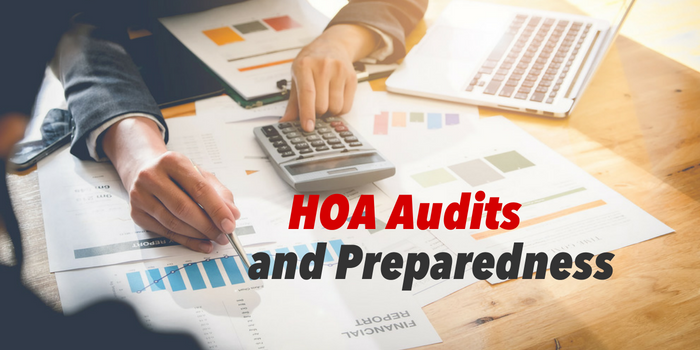Sometimes the word “audit” makes people nervous and uneasy, but the reality is they are part of any business. Your HOA should be prepared and know how an audit works and when it’s time to do one for your community.
The first thing your board needs to do is understand when and why your HOA is required/encouraged to conduct an audit.
Here are three things you should look into:
- Depending on your state and local laws, your HOA may already be required by law to conduct an independent audit, so it is important to know how those laws affect your community. Not only do these laws vary by state/city, but they also vary depending on the size of your community, how many units you have, and the size of your budget.
- Some states have no requirements on HOA audits, but that doesn’t mean your HOA should dismiss the idea. Being proactive and conducting an audit when there is a change in long-term management, when you see something suspicious, or when there is misconduct will benefit your community in the long run.
- Check your governing documents! In come cases, holding an independent audit is required by HOA bylaws. Usually this is the case for large communities with 100+ units, but it could apply to any community. So double check!
Next, and equally important, is to understand the reasons behind an audit. On several occasions we’ve worked with HOAs that don’t understand the difference between compiling financial records and conducting an audit.
Here are the main differences you need to know:
- Compiling financial records should be a regular, ongoing process. Audits are done less frequently because they are expensive, and increase in cost if you skip a couple years between them.
- Keeping proper records that line up with the American Institute of CPAs guidelines will ensure more streamlined audits, and can reduce the cost as it eliminates time-consuming work for the CPA.
- If you use QuickBooks, make sure your HOA specifics fund accounting rather than enterprise accounting, or you’ll run into problems during the audit. Remember, you’re a business but an HOA is more similar to a nonprofit than a corporation!
- Looking at profit and loss statements won’t hurt, but you also need to be concerned about having the right funds created and looking at changes in fund balances to have a real picture of your community’s financial health.
It’s important for your HOA to compile proper financial records and conduct audits when appropriate. It’s also important for your board to consider the benefits of talking with Spectrum about our Financial Health and Risk Audit report for HOAs. Sometimes the difference between success and failure is having the right experts involved early on!







